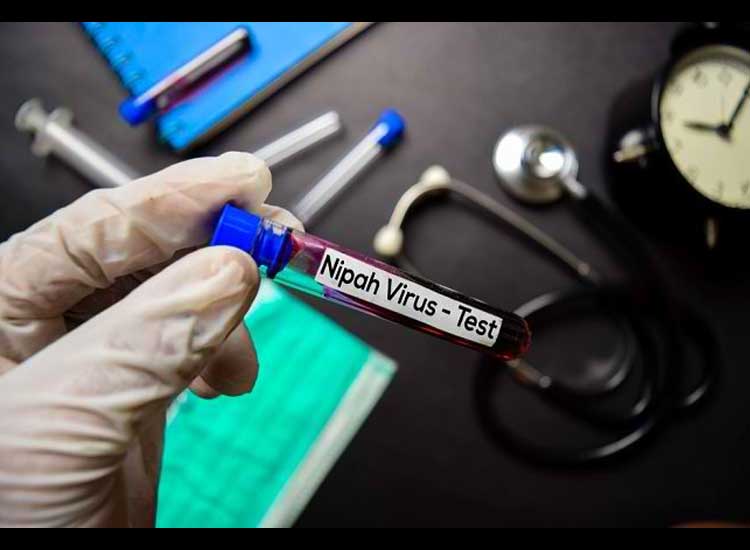Nipah Virus, Be Aware of Its Causes and Symptoms – Nipah virus is a dangerous viral infection that can cause encephalitis. Transmission of the Nipah virus occurs from animals to humans. Until now, there is no known effective treatment for this viral infection. Therefore, you need to be aware of the causes and symptoms that can arise.
Nipah virus belongs to the genus Henipavirus, a group with Langya virus and Hendra virus, which also infect animals and can be transmitted to humans. The animal that first carried this virus was a fruit bat belonging to the Pteropodidae family.
The first outbreak of Nipah virus occurred in pig farms in villages near the Nipah River, Malaysia in 1999 and spread to Singapore. This outbreak occurred due to large-scale deforestation which caused many bats to move closer to the farm area and then transmitted the Nipah virus to pigs.
Causes and Risk Factors for Nipah Virus Transmission
Nipah virus is a zoonotic infection , meaning it is transmitted from animals to humans. Initially, transmission of the Nipah virus occurred from fruit bats to farm animals, such as pigs.
However, not only pigs, some other farm animals or pets, such as goats, horses, dogs, or even cats, can also be infected and eventually transmit the Nipah virus.
Then, transmission to humans can occur if someone consumes infected livestock or is exposed to bodily fluids, such as blood and feces from infected animals. Furthermore, human-to-human transmission can occur through close contact with bodily fluids of sufferers, including droplets, blood, and urine.
People who are at high risk of contracting the Nipah virus are as follows:
- People who consume raw, unfermented palm sap, food, or fruit, contaminated with Nipah virus
- People who have recently traveled to areas where the Nipah virus is endemic
- People who are exposed to bodily fluids from infected animals or other people, including droplets released when coughing or sneezing, blood, feces, urine, or saliva.
- People who have close contact with animals or other people infected with the Nipah virus, such as medical personnel or workers in community health service centers.
In addition, workers climbing trees where fruit bats roost or live, such as palm trees, are also known to be at risk of contracting the Nipah virus.
Various Symptoms of the Nipah Virus that You Need to Know
The time span for symptoms to appear after exposure to the Nipah virus (incubation period) is around 4–14 days. Early symptoms of Nipah virus infection can be similar to common flu symptoms . Then, as the infection progresses, severe symptoms will appear due to inflammation and swelling of the brain (encephalitis) to death.
After the incubation period is over, initial symptoms will appear which can last for the first 3–14 days. The symptoms that can appear are as follows:
- Fever
- Headache
- Cough
- Sore throat
- Muscle ache
- Difficulty breathing
- Diarrhea
- Vomit
If the infection continues, severe and severe symptoms will appear due to encephalitis . Here are some symptoms that occur in the brain inflammation phase:
- Heavy drowsiness
- Feelings of confusion about place and time (disorientation)
- Difficulty focusing and concentrating
- Seizures
- Coma
These encephalitis symptoms can worsen rapidly, usually within 24–48 hours. In about 40–75% of severe cases of Nipah virus infection, death can occur after encephalitis symptoms appear.
Some cases of Nipah virus infection are also latent. This means that symptoms, whether mild or severe, only appear several months to years after the initial infection.
To date, there is no cure for Nipah virus infection, nor is there a vaccine to prevent the disease. Existing treatments focus on treating symptoms, preventing dehydration, and allowing the sufferer to rest.
However, there are several drugs that are considered to have the potential to be used in treating the Nipah virus, namely immunotherapy with monoclonal antibodies, remdesivir , and ribavirin .
Although there have been no reports of Nipah virus infection cases in Indonesia, you still need to be vigilant because the virus is classified as easily transmitted from infected animals or people so it is considered to have the potential to become a pandemic . As much as possible, avoid contact with sick animals or people, especially in areas where the outbreak is occurring .
If you have had contact with an animal or person suspected of being infected with the Nipah virus and experience symptoms of fever, cough, muscle pain, headache , and weakness, do not hesitate to immediately see a doctor to get the right treatment.


No Responses